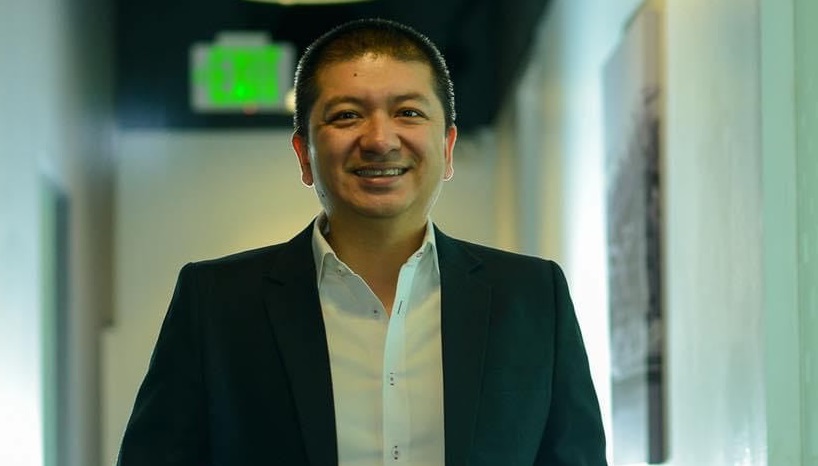Last month, I organized a Digital Growth Day event online and had the chance to have ex-Payoneer and fintech executive Miguel Warren join the session. I met Warren when he first joined Payoneer and was supportive of our learning series for entrepreneurs. Let me share with you the highlights of our discussion.
Cross-border e-commerce in the next 5 years
For the past 5 years, there has been exponential growth in the field of cross-border e-commerce driven by global marketplaces like eBay and Amazon and regional ones like Lazada and Shopee. Business models like dropshipping and print-on-demand drop shipping enable more people to participate in the global including Filipinos.
Moving to the next five years, Warren said it is difficult to predict what it will look like.
“Post pandemic, as inflation and rising interest rates are impacting consumer sentiment, many are forecasting low single-digit year-on-year growth for this peak holiday selling season,” he said.
With the Asean digital economy forecasted to grow by $1 trillion by 2030, Warren noticed big markets like Indonesia and Vietnam are growing exponentially and more merchants will sell not just on marketplaces but on their own Web stores.
“The rise of social commerce (e.g. Shoppertainment) will play a factor in the next 5 years. There’s a lot of interest and activity on platforms like TikTok for both small and large brands. Merchants will also look to leverage new technologies like generative AI to improve the buyer experience and enhance product discovery. Buyers and consumers will also start to incorporate AI into their shopping habits including asking for gift ideas,” he said.
I think AI will also evolve and can be used further for seller and buyer verification, scam checker, price comparison, and authentic review checker, among others.
Freelancers and entrepreneurs working together
There are many opportunities to help e-commerce merchants. Warren noted that freelancers support this ecosystem.
“Freelancers provide virtual assistant (VA) services to manage online stores, provide customer service, and social media support. As more merchants sell into APAC, this will continue to drive growth in freelance VA services,” he said.
But Warren is also reminding freelancers to stay ahead of the curve and continue to build their skill sets.
“AI is both a threat and an opportunity. Threat because low-level tasks can now easily be automated. But opportunity because AI technology can be used to be more productive for automating own tasks and handling more clients,” he stressed.
Is fintech catching up with the needs of entrepreneurs, startups, and freelancers?
Warren observed that startups, small, and medium enterprises (SMEs) continue to be highly underserved by traditional financial institutions and this is all the more pronounced when it comes to doing business internationally.
He explained, “Movement of money and foreign exchange is a typical challenge. When selling internationally, you will need to receive various currencies and figure out how to transfer them locally in your home currency. There are many fintechs that help with this and it ultimately helps sellers access the funds faster and at a lower cost than traditional financial institutions.”
Another thing that start-ups and SMBs often struggle with is acquiring new customers and paying for digital advertising on platforms like Facebook and Google. Some face payment limits and cross-border fees.
It is also important for freelancers and SMBs to get deeper into financial management as they grow and scale their businesses.
“As business grows and freelancers start to hire other freelancers or employees, this becomes even more critical from budgeting, forecasting, and statutory compliance (tax) is an area where there needs to be more education and awareness initiatives. They also need to learn how much they are paying for foreign exchange and other payments,” said Warren.
Warren noticed that more fintechs deepen their accounts payable capabilities to include budgeting, financial management, employee expenses, etc.
“Companies like Aspire and Deel are starting to build more software features into their product and embed more business process flows into their solution, becoming more like a software as a service (SaaS) offering.”

Payments in general is a large part of fintech that helps businesses scale internationally. Increasingly, more fintechs are also going into credit whether it’s working capital to help grow businesses or buy now pay later (BNPL) to offer alternatives for customers to buy their products.
Warren anticipates, “Credit will continue to be a growing area within fintech, as more businesses look to expand internationally. Traditional banks will likely still struggle to underwrite these types of business loans, and I’ve seen many examples of how businesses are increasingly looking to fintechs for working capital.”
Many fintechs still rely on banks for the underlying infrastructure to move money. Warren noticed that banks are much more open today to working with fintechs and trying to find ways to improve the customer experience and acquire new types of customers.
“More banks are working with fintechs to enable receiving accounts.As banks improve their digital banking, more will look to integrate with fintechs,” he said.
Higher expectations from startups’ efficiency and sustainability
As start-ups and entrepreneurs grow their businesses, they will invariably need to think about their business processes and how they can digitize them to become more efficient including procurement and human resources.
Warren used Shoppable and Talenthero to amplify this point. “Like Shoppable, they’ve built a B2B marketplace that incorporates logistics infrastructure, financial products, and e-commerce tools that digitize traditional procurement processes. They are really promising and they’ve been able to raise a meaningful amount of capital to grow their business.”
“Another PH start-up is Talenthero, which automates human resource recruitment processes and even offers employer of record so businesses that want to expand don’t need to create local entities in all the countries where they have teams.”
Warren, who is actively exploring the world of startups as a mentor, advisor, and investor, is really excited about the start-up community in the Philippines. He thinks it is in the early innings, and with a lot of opportunity to grow. Although there are a lot of challenges for venture capitalists in a high-interest rate environment lately.
“In the past, it has been really easy to grow and scale because the cost of capital was much lower. But today, with interest rates at such a high level, more scrutiny is going into the unit economics of a start-up’s business model. Can they make money and are the margins sustainable? That said, I believe that many people are still interested in supporting start-ups. This includes crowdfunding and angel investing where you can get involved earlier in the process.”




